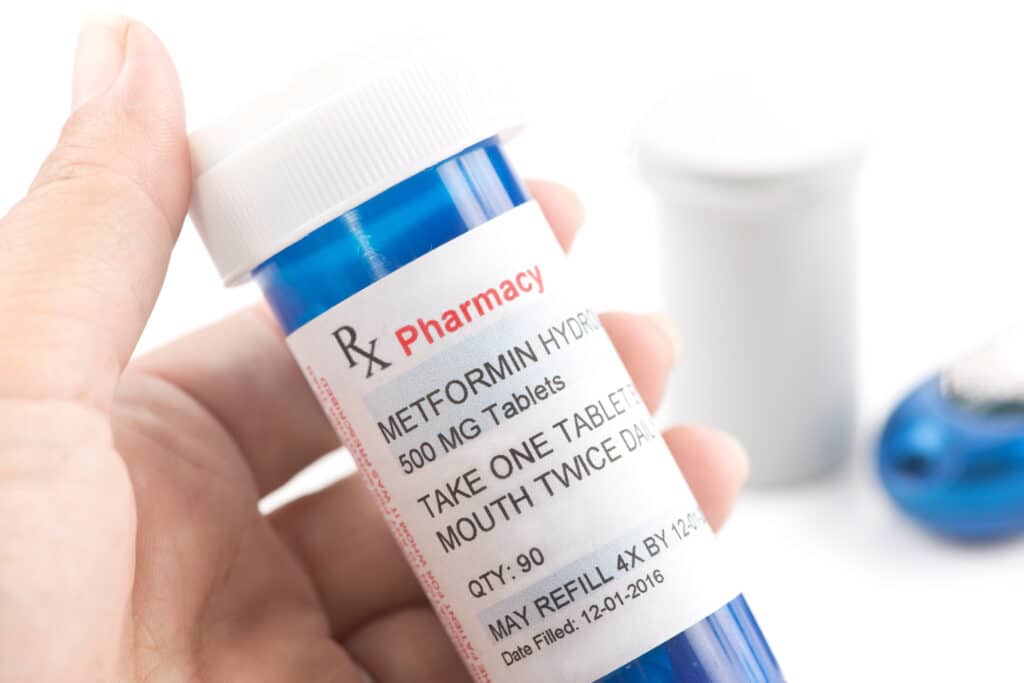Introduction
Prediabetes is one of those on-the-edge situations where you do not quite have diabetes, but your blood sugar is high enough to raise red flags. Over dinner one night (ok, maybe it was on a car ride, we don’t really know other than with our 3 young kids…any in-depth conversations at the dinner are typically OFF the table), we got into a classic debate—should we start metformin for prediabetes? As a pharmacist, I lean into evidence and guidelines, while my wife, Cassie, a nurse practitioner (NP), brings the patient context and whole-person view. Let’s unpack our perspectives and find some common ground.
Pharmacist Perspective (Cory)
Before we get rolling into our back-and-forth conversation, let me make sure we are all on the same page when it comes to Prediabetes. Rest assured, this is the Nurse Practitioner Perspective too. Prediabetes, in simple terms, means that blood sugar is elevated, but not high enough to be classified as type 2 diabetes. It’s a warning sign that a person’s body is becoming insulin resistant. And, without intervention, could progress to diabetes. A person is considered to have prediabetes if:
- Their fasting blood glucose range is 100-125mg/dL
- They have a Hemoglobin A1c between 5.7% and 6.4%
- Their 2-hour glucose tolerance test range is 140-199 mg/dL
Metformin has been a first-line pharmacotherapy workhorse for type 2 diabetes for decades, and there’s growing evidence supporting its role in prediabetes. Metformin is considered 1st line pharmacotherapy for people with pre-diabetes at high risk for developing Type 2 Diabetes according to the American Diabetes Association. One of the most cited studies—the Diabetes Prevention Program (DPP)—found that metformin reduced the incidence of type 2 diabetes by 31% compared with placebo, with even stronger effects (up to 53%) in younger individuals with higher BMIs.1
It’s affordable, well-studied, and generally safe. From a pharmacologic standpoint, it’s not just about blood sugar; metformin may also offer modest weight loss benefits and cardiovascular protection.2
So, when I see someone with impaired fasting glucose or impaired glucose tolerance and they’re struggling to get their A1c below that 5.7% mark, metformin is a practical, proactive step. I don’t hand it out like Halloween candy (and I certainly suggest my patients avoid ALL candy), but it’s a great tool in the right setting. I typically will recommend it to patients on the higher range of prediabetes A1c, especially if they are struggling to implement lifestyle modifications, or if despite lifestyle changes, their blood sugar has not shown improvement as these patients tend to be at a higher risk for moving from Pre Diabetes to Type 2 Diabetes.
That said, it’s not a magic bullet. Lifestyle modification—diet, exercise, and weight loss—was even more effective in the DPP trial, reducing diabetes incidence by 58%.1 And starting a lifelong medication for a condition that isn’t technically a disease yet? That opens the door to side effects like GI upset, vitamin B12 deficiency3, or the very rare but real risk of lactic acidosis—especially in people with kidney issues.
In short: metformin can be great, but not for everyone, and not without a thoughtful conversation first.
Nurse Practitioner Perspective (Cassie)
I get it—Cory loves his evidence-based algorithms. Typical left-brained pharmacist. His organization and rational thinking are some of the reasons I love him. But I tend to look through a slightly different lens.
To me, prediabetes is a clinical nudge, not a diagnosis that always requires a prescription pad. Yes, the numbers matter. But so do sleep habits, physical activity, stress, access to healthy food, cultural factors, and what’s on the dinner table (not saying Cory doesn’t care about those things).
When I see someone with prediabetes, my first reaction isn’t “Should I write a prescription for metformin?”, but rather to dive in with “Where are they starting from?” I’ve had patients reverse prediabetes through simple, practical diet and exercise interventions that can be as simple as switching from soda to sparkling water. No co-pay, no GI upset.
And lifestyle-first approach aligns with the American Diabetes Association’s (ADA) guidelines, which recommend lifestyle modification as the first-line treatment for all patients with prediabetes. Metformin is only suggested in select high-risk individuals—those with BMI ≥35, age under 60, a history of gestational diabetes, or those whose A1c continues to rise despite lifestyle efforts.
And let’s talk about those side effects. GI issues from metformin are real and often lead to non-adherence.4 Add in the need to monitor kidney function and the risk of low B12 levels, and suddenly this “simple” med isn’t so simple. Also, labeling someone “prediabetic” and giving them a med can make them feel like they no longer have control, since they now have a “disease that is being managed.”
While metformin helps some folks, behavioral change can work just as well, or even better! So why not give that a serious try first?
That said, if someone has tried realistic lifestyle changes and their numbers are still inching up—or they have multiple risk factors—I’m totally open to starting metformin. It’s not off the table, it’s just not my first move.
Kitchen Table Consensus
We both agree: prediabetes is a big deal. It’s not a diagnosis to ignore or sugarcoat (pun intended). But that doesn’t mean every patient needs to walk out of their visit with a prescription.
Instead, we believe in a tiered approach:
- Start with lifestyle: realistic goals, patient-centered support, and tools that fit the individual’s life
- Add metformin selectively: for higher-risk patients or when lifestyle changes alone are not enough.
- Keep the conversation going: prediabetes is a dynamic condition. Numbers can improve, and patients should feel like they’re in control—not just being managed.
We both believe in shared decision-making, individualized care, and staying away from a one-size-fits-all approach.
Practical Takeaways
- Lifestyle intervention remains the gold standard, cutting risk by 58% and improving overall health.1
- Start metformin selectively in patients with prediabetes, particularly when lifestyle efforts aren’t enough or risk of developing T2DM is very high.
- Monitor kidney function and watch for side effects, like GI upset and B12 deficiency in patients on metformin.
- Avoid over-medicalizing prediabetes—support, empower, and guide patients to long-term health habits.
Final Thoughts
At the end of the day, metformin is neither a hero nor a villain. It’s a tool—one that can help when used thoughtfully and in the right patient. The real work is in building trust, understanding each person’s health journey, and walking beside them instead of rushing to the medicine cabinet.
Whether you’re on #TeamCory or #TeamCassie, the important thing is that we keep the conversation going—at the clinic and around the kitchen table.
References
- Knowler WC, et al. (2002). Reduction in the incidence of type 2 diabetes with lifestyle intervention or metformin. N Engl J Med, 346(6), 393–403.
- Boussageon R, et al. (2012). Metformin and cardiovascular outcomes: a systematic review. Diabetic Medicine, 29(10), 1140–1151.
- de Jager J, et al. (2010). Long term treatment with metformin in patients with type 2 diabetes and risk of vitamin B-12 deficiency. BMJ, 340, c2181.
- Bajaj SS, et al. (2022). Adherence to metformin and gastrointestinal side effects in prediabetes and diabetes: a meta-analysis. Diabetes Therapy, 13(2), 489–504.
- American Diabetes Association. 3. Prevention or Delay of Type 2 Diabetes and Associated Comorbidities: Standards of Care in Diabetes—2024. Diabetes Care. 2024;47(Suppl 1):S125–S132.







